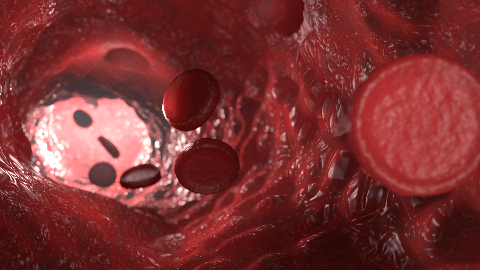Blood Cancer Awareness Month 2018
Blood Cancer Awareness Month takes place every September to raise awareness of the challenges faced by those living with blood cancer. In the UK, blood cancer is the fifth most common cancer, with 240,000 people living with the disease and 38,000 people being diagnosed with a type of blood cancer each year. The three main blood cancer types are leukaemia, lymphoma and myeloma; however, there are over 100 individual types.
Transforming the landscape of blood cancer treatment
The ability to sequence the genetic codes of cancer samples has revolutionised cancer treatment, making it possible to develop drugs that specifically target the genetic changes that drive cancer progression. These ‘targeted therapies’ offer promising clinical benefits for patients and are associated with reduced toxicity when compared to conventional chemotherapies.
A range of targeted chemotherapies have shown promising results for blood cancer patients. These include imatinib used for the treatment of chronic myeloid leukaemia, venetoclax used for the treatment of chronic lymphocytic leukaemia (CLL) and ibrutinib used for treatment of CLL and lymphomas.
Much of the research in our Centre for Haemato-Oncology, led by Prof John Gribben, focuses on understanding the genetic alterations that lead to cancer in order to identify new targets for drug development.
Immunotherapy

Immunotherapies- treatments that utilise the body’s immune system to fight cancer- are a promising treatment option for blood cancer. CAR-T cell therapy has been a particular area of interest recently, and has shown encouraging results in clinical trials, particularly for patients where other treatments have been unsuccessful.
In CAR-T cell therapy, T cells- key immune cells responsible for fighting infected or cancerous cells- are isolated from patient blood samples, modified outside of the body and reinjected back into the patient. Once back in the body, these T cells are now equipped to recognise specific targets expressed by cancer cells and kill them.
It was recently announced that CAR-T cell therapy may soon be available on the National Health Service for some children with leukaemia. The therapy, named Tisagenlecleucel (also known as Kymriah), has been licenced for the treatment of patients up to 25 years old with B cell acute lymphoblastic leukaemia in which other treatments have been unsuccessful.
Tackling cancer at the root
Work within our Centre for Haemto-Oncology is also focusing on identifying the first cells in which blood cancer arises- the so called ‘cancer stem cell.’ These cancer stem cells have the ability to divide indefinitely and contribute towards disease progression.
Since the majority of treatments currently offered to patients do not target the cancer stem cells, these cells can persist following a treatment regimen and lead to cancer recurrence or spread. In order to treat the disease effectively, more research in this area is vital so that these cancer stem cells can be identified and targeted specifically with the aim of eliminating the very root cause of the disease.
A need for increased awareness
Although significant progress has been made in terms of the therapeutic options available for patients, blood cancers are still collectively the third largest cause of cancer mortality in the UK, claiming more lives than breast or prostate cancer. Despite these statistics, over 50% of people in the UK do not know the common symptoms of the disease (according to a recent poll by the blood cancer charity Bloodwise).
Gemma Peters, CEO of Bloodwise- a major funder of research in our Centre for Haemato-Oncology- said:
Blood cancers are collectively the third biggest cancer killer in the UK but we know that awareness of diseases like leukaemia, lymphoma and myeloma and their symptoms is startlingly low. Blood Cancer Awareness Month is helping to shed a light on these cancers and the problems that patients face.
- Thank you to Bloodwise, Cancer Research UK, the Medical Research Council and the Kay Kendal Leukaemia Fund for supporting our blood cancer research -
Category: General News

No comments yet